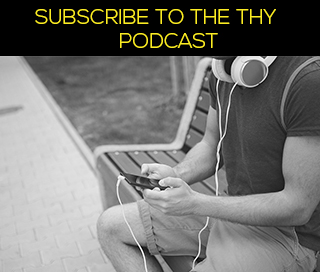
The Self Is Not Real – Attachment Will Lead to Suffering
Is the concept of Self an illusion? That is the question that I’d like to discuss in this post. It’d be great if I could give a definite answer. However, I am not sure I am wise enough. And of course, if there is no Self how could ‘I’ which is an identity or attachment to a form of Self possibly know the truth. Contemplation and reflection may be my best attempt.
We can describe the Self as a person’s essential being that distinguishes them from others, especially considered as the object of introspection or reflective action. In teachings of the Buddha, there is a concept of no-self or not-self referred to as anatta. It is a controversial topic that’s difficult to understand, and I think beyond that even harder to accept.
For me, my interest in the concept of Self is a result of my search to reduce my Self-imposed or Self-created suffering. As I have traversed the last several years and committed to trying to figure out life, I have discovered and begun to realise that much of my dissatisfaction in life is Self-caused.
As this has come to light, I have tried to understand myself better by asking the question, “Who am I?” Buddha might describe this as an issue to put aside as questions that do not lead to end suffering or discontent are not worth pursuing. Again, I am not sure if this is an accurate reflection of Buddha’s approach, but the question of Self is not one I wish to put aside.
What I notice when I contemplate the thought of Self is that it appears to be an attachment to some conscious level of identity, based on my past. If I were without consciousness would the concept of Self, be non-existent? “I am this because of that.”
My personality, my characteristics, my nature is all a condition of my life experiences. Perhaps my genes have some part to play, too. However, I think that in most part the Self, my story or inner narration that guides my life is a system of neurological systems of the brain that have formed concepts. These “concepts” have developed through my life’s experiences. The consciousness then interprets and uses these concepts to assist “me” to interact with the relationships of my reality.
If we didn’t have this sense of Self how would we know how to interact with our environments. In this way, I see the Self as a conventional tool that gives our life context and position in this reality we live. I am “this, ” so for that reason, this is how I interact with the world around me.
I wrote an article title The Story We Tell Ourselves – recently revised and which you can read here. In this paper, I discuss the topic of our inner narration and story and why it can be beneficial yet at the same time harmful. More importantly, however, was that the story we identify with is just that, a story. A fictional creation. We have the choice to embrace it and allow it to guide the reality we live or to change it to create more meaningful realities.
The question that still goes unanswered, “Is the Self “real,” or is it only a hallucination that separates us from the oneness of the universe?” Biologically speaking I would have to agree with arguments that the Self doesn’t exist. If it did perhaps then could we locate it and remove it, maybe we could operate on it to remove the parts of our Self that we don’t like.
Conversely, I suggest that we all identify with some form of Self. And with consciousness, we can map our mental and emotional processes and then use them to direct our behaviors.
I could go deeper but in the desire to avoid that let me just suggest that Self is the tool that we use for everyday purpose and operation and something that gives us a sense of identity and therefore meaning to the life we live. Furthermore, because the Self is not “actual,” it is possible to alter it based on our ability to both observe it and shape it.
We can use it for beneficial purposes. It can help us create meaning to our unique and individual lives, and the time we have to experience this life. It allows us to follow paths that are indeed unique and separate from others. It can be the source of ambition and motivation used to follow our dreams. It forms our Life Compass as we search for deeper happiness and meaning. It can also be the source of our stress, dissatisfaction, and suffering.
If the Self isn’t real but rather a creation of the mind and interpreted by our consciousness to guide our lives and create the reality we live then I am not my Self. Attaching to a particular concept or identity of Self, in essence, creates a kind of expectation about the life we live. And if much of what exists is outside our control, including the creation of Self, then clinging to an expectation that doesn’t transpire will only lead to greater suffering.
The Self can guide us and bring us meaning but if the reality we find ourselves living is unsatisfactory or not as we desire, what then? Perhaps the attachment to the current concept of the Self is not worth holding onto, but can we let go? Remembering that the Self forms how we interact with the world and it is that interaction that sets the tone of our reality.
Maybe this is why it is a Buddhist doctrine and formed part of Buddha’s teachings. For anything that doesn’t lead to the removal of suffering should not be pursued or attached. I’d like to explore why the concept of Self can lead to greater pain in an upcoming post. For now, let me round things off here.
On the one hand, we can use the concept of Self that we identify with to create meaning. We can use it to guide us in the pursuit of great satisfaction via the achievement of goals, attainment of things and progression of our individual or collective potential.
On the other hand, if it is not conducive to the life we wish for we can just abandon it. In doing so, we go about developing a new identity, or at least we try to convince the mind that we are or can be someone else. I think that because the brain is so malleable, it proves on a deeper level the Self isn’t real, because if it were how could we just discard it and move on when it’s not as desired.
I am compassionate, kind, caring and impatient. I am a great cook, an excellent writer, and a “deep” person. I am at highly emotional, sometimes a little abrupt or arrogant and can be a little stubborn. These concepts I identify as me are just that, concepts. Formed over the years of experience that I’ve been alive. I have no problem with this surface level identity of Self. I don’t think anyone of us should. It is as it is.
The problem arises when I use these concepts, but they don’t mesh with my actual reality. If there is a conflict of expectation that comes about at any given moment, I might find some level of dissatisfaction of suffering.
For example, if I believe I am compassionate and this clashes in any given moment with behaviors that are uncompassionate then that would challenge the identity of Self. If I believe myself to be a good writer but particular goals are not being achieved to prove that, I may also suffer.
Suffering is a cause of clinging to expectations and expectations that are a result of the disillusionment of the Self, are no more real than realness we attach to it. When we find ourselves locking onto objects in a belief they are solid, tangible or unchangeable we create a false sense of reality. Holding onto to things that are outside our control and are forever subject to change can cause stress that leads to dissatisfaction.
Neuroscience is forever better able to explain how the brain works and this helps us better understand how we operate. However, we are only at the very early stages of understanding. Research can explain how the concepts of Self that we all attach ourselves to develops over our lifetime.
A great book I recently read that explained this brilliantly was one by Lisa Feldman Barrett called How Emotions Are Made: The Secret Life of the Brain
. You can read my review here.
We know without much doubt that the brain develops concepts and becomes the centerpiece for our ability to interact with the world through connections with the body and the environment we live. It sets our thoughts, beliefs, and behaviors. We also know that it is not set in stone and is indeed elastic.
I would suggest this is where the formation of Self arises, through the intricate system that is our brain. If we can change the patterns in the brain, we can modify the Self and that being the case perhaps the Self is just an illusion.
We know we can alter the reality we live by working to change our concepts. We can do this by pushing the boundaries of our everyday experiences. It is through life experience we can develop new concepts to identify with. The problem is it is not easy to do this especially if we’ve held onto a particular identity for some time. It can be difficult to create new paths, and old paths never vanish, only subside.
At the point of writing this, I think it’s beneficial to understand the Self by introspection and contemplation. In doing so, we may use it in a way that minimises our suffering and gives our life meaning. Becuase without meaning for what is the purpose?
Let me know your thoughts below.
FIND YOUR HIDDEN WHY with THE HIDDEN WHY (THW)
BUILD YOUR LIFE AROUND YOUR PASSION AND LIVE WITH PURPOSE
Sign up for free below and receive cool stuff from me each week + Plus a free copy of “The Four Pillars of Success”
In my weekly emails you will receive ideas, thoughts, learning’s and inspiration on:
- How to design a life that you want and live by your terms
- How to live a life with passion & purpose
- Methods, strategies, & techniques on life hacks
- Messages on how to better live your life
- We will also keep you up to date with fantastic interviews from THW podcast













Leave a Reply